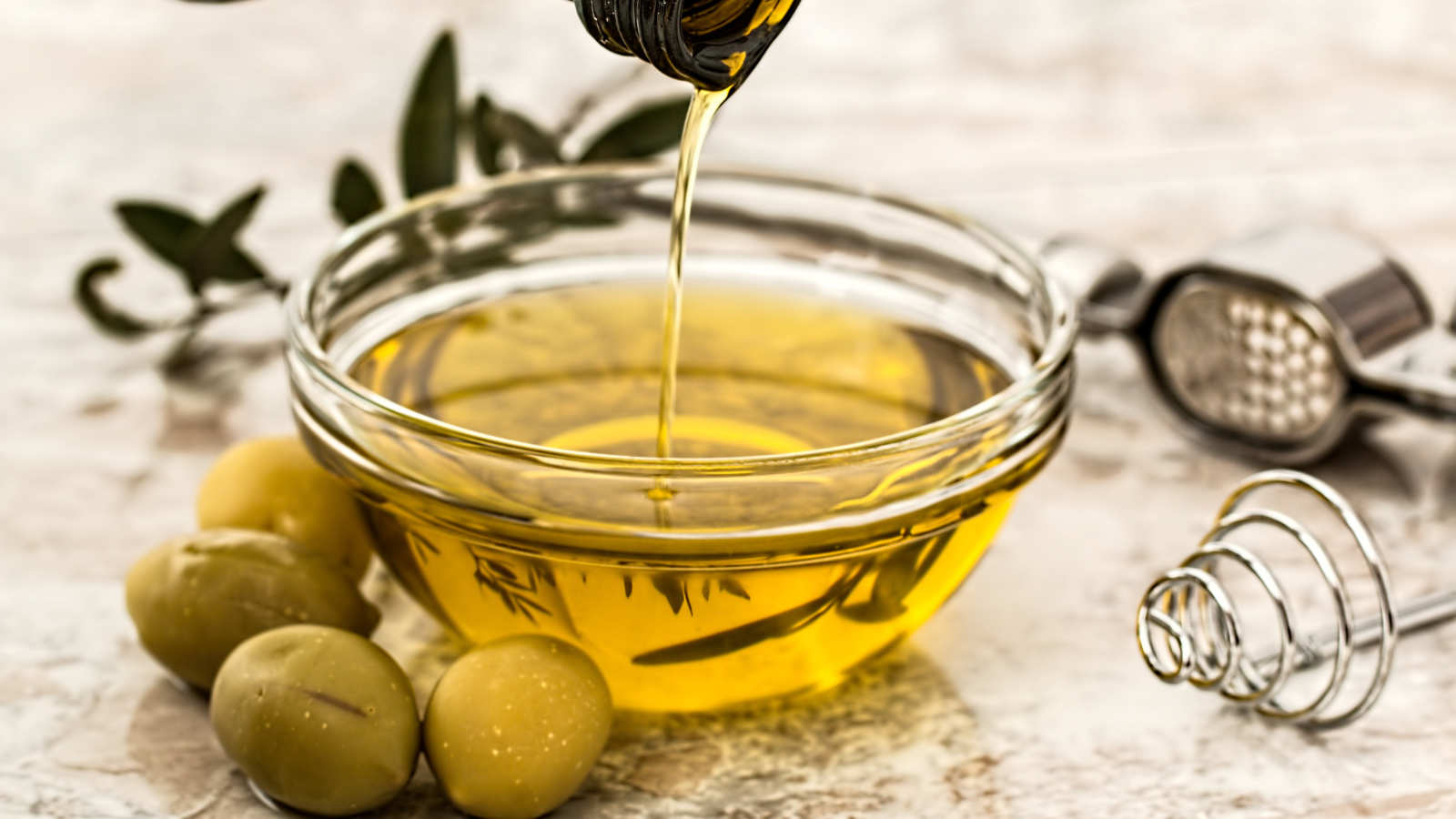
Why Every Parent Should Consider Vitamin D in Olive Oil for Their Kids
In an age where ensuring our children's health and well-being takes center stage, one nutrient stands out as particularly vital: vitamin D. However, the traditional means of obtaining this essential vitamin may not always suffice, especially in regions with limited sunlight exposure. Enter olive oil, a versatile and beloved staple known for its numerous health benefits.
When combined with vitamin D, olive oil becomes more than just a culinary delight – it becomes a powerhouse of nutrition for growing children. In this exploration of why every parent should consider incorporating vitamin D in olive oil into their children's diets, we delve into the compelling reasons behind this nutritional choice and its profound impact on children's health and development.
What is Vitamin D?
Vitamin D, often referred to as the "sunshine vitamin," is a crucial nutrient that plays a vital role in various bodily functions. It is responsible for maintaining strong bones and teeth, supporting the immune system, regulating mood, and promoting overall health and well-being.
What is Olive Oil?
Olive oil, derived from pressed olives, is renowned for its numerous health benefits. Rich in monounsaturated fats and antioxidants, olive oil is a staple in Mediterranean cuisine and is celebrated for its contribution to heart health and overall longevity.
Health Benefits Of Olive Oil For Kids
Olive oil offers a plethora of health benefits for kids. Its anti-inflammatory properties can aid in reducing the risk of chronic diseases, while its high antioxidant content helps protect cells from damage. Additionally, olive oil may promote healthy growth and development in children's diets.
Why is Vitamin D Important in Olive Oil For Kids?

While olive oil contains only trace amounts of vitamin D, its role in a child's diet alongside foods rich in vitamin D can be very beneficial. Here’s why vitamin D is particularly important for children:
-
Bone Growth and Health: Vitamin D is crucial for absorbing calcium and phosphorus, two minerals essential for developing strong bones and teeth. Adequate vitamin D prevents children from developing rickets, a disease characterized by softened and weakened bones, potentially leading to deformities and fractures.
-
Immune System Support: Vitamin D plays a critical role in the functioning of the immune system. It helps activate the immune system defenses, which can protect children from various infections and diseases.
-
Muscle Function: This vitamin is also important for muscle function. A deficiency in vitamin D can cause muscle weakness and pain, which can affect a child's ability to engage in physical activities.
-
Heart Health: Early research suggests that vitamin D might play a role in heart health, including maintaining proper blood pressure and heart function. Ensuring adequate intake during childhood can set the foundation for cardiovascular health.
-
Mood Regulation: Vitamin D has been linked to mood regulation and may reduce the risk of depression. Adequate levels can contribute to overall better mood and mental health in children.
While olive oil is not a significant source of vitamin D, its use in a balanced diet can enhance the absorption of vitamin D obtained from other sources. Vitamin D is fat-soluble, meaning it requires dietary fat for its absorption.
Therefore, combining vitamin D-rich foods like fatty fish (salmon, mackerel), egg yolks, or fortified foods (milk, cereal) with dishes containing olive oil can improve the vitamin’s uptake.
Ensuring children get enough vitamin D can involve direct sunlight exposure, which naturally stimulates vitamin D production in the skin, and incorporating a diet rich in vitamin D or supplemented where necessary.
Pediatricians often recommend vitamin D supplements, especially in regions with limited sunlight exposure, to help children maintain optimal health. Always consult a healthcare provider to determine your child's appropriate vitamin D intake.
How Can You Get Your Kids to Take It?
Getting children to take olive oil as part of their diet can be challenging, especially if they are picky eaters or not used to the flavor. Here are some strategies to help incorporate olive oil into your child's meals in a way that they'll enjoy and benefit from:
-
Mix it into Foods They Already Like: You can start by adding olive oil to familiar foods. Drizzle it over pasta, blend it into mashed potatoes, or stir it into soups and stews. These are subtle ways to incorporate it without altering the taste too much.
-
Use it in Cooking: Instead of other oils or butter, use olive oil for cooking. It can be used for sautéing vegetables or as the base for frying eggs. The mild taste of olive oil usually goes unnoticed, especially when combined with other ingredients.
-
Make Dressings and Dips: Use olive oil to make simple dressings for salads or vegetables. Kids often enjoy dipping their food, so offering olive oil-based dips like hummus or a yogurt and olive oil dip can be an appealing way to encourage them to consume it.
-
Bake with It: Olive oil can be used as a healthier fat substitute for butter in baking. It can be used in cakes, muffins, and other baked goods. It adds moisture and can enhance the texture of baked items.
-
Educate Them: Depending on their age, educating children on why olive oil is good for them can sometimes encourage them to try it. Talk about how it helps build strong bones or keeps their skin and hair healthy.
-
Start with Small Amounts: If your children are not used to the taste of olive oil, start with small amounts and gradually increase it as they get accustomed to the flavor.
-
Make Fun Food Together: Engage your kids in making meals or snacks that include olive oil. Preparing food together can make them more interested in trying what they've helped to create. Simple recipes like making a pizza at home and drizzling olive oil over it before serving can be fun.
-
Choose Mild Flavors: Some olive oil has a strong flavor that might be off-putting for kids. Choose lighter, milder olive oils that blend more easily into dishes without dominating the taste.
By incorporating these strategies, you can make olive oil a regular part of your child's diet in a way that is enjoyable for them. Always consult with a pediatrician or nutritionist to ensure that any new dietary inclusion is suitable for your child.
What Precautions Should Parents Take when Giving Olive Oil to their Kids?
Parents should take certain precautions when giving olive oil to babies to ensure their safety and well-being. First, it's essential to wait until the baby is at least six months old before introducing olive oil or any other solid foods.
Introducing olive oil too early can increase the risk of digestive issues and interfere with proper nutrient absorption. When starting to incorporate olive oil into the baby's diet, it's advisable to begin with small amounts and gradually increase as tolerated.
Additionally, parents should choose high-quality, extra virgin olive oil with Vitamin D to ensure purity and maximum nutritional benefits. It's also important to monitor for any signs of allergies or adverse reactions after introducing olive oil and consult with a pediatrician if any concerns arise. By taking these precautions, parents can safely incorporate olive oil into their babies' diets as part of a balanced and nutritious meal plan.
Conclusion
The inclusion of vitamin D in olive oil offers numerous benefits for children's health and well-being. Parents can support their bone health, immune function, and overall growth and development by providing children with vitamin D-rich olive oil.
However, parents need to take precautions when giving olive oil to babies to ensure their safety and well-being. By incorporating olive oil into their children's diets safely and responsibly, parents can help ensure they receive the essential nutrients they need for optimal health and vitality.

